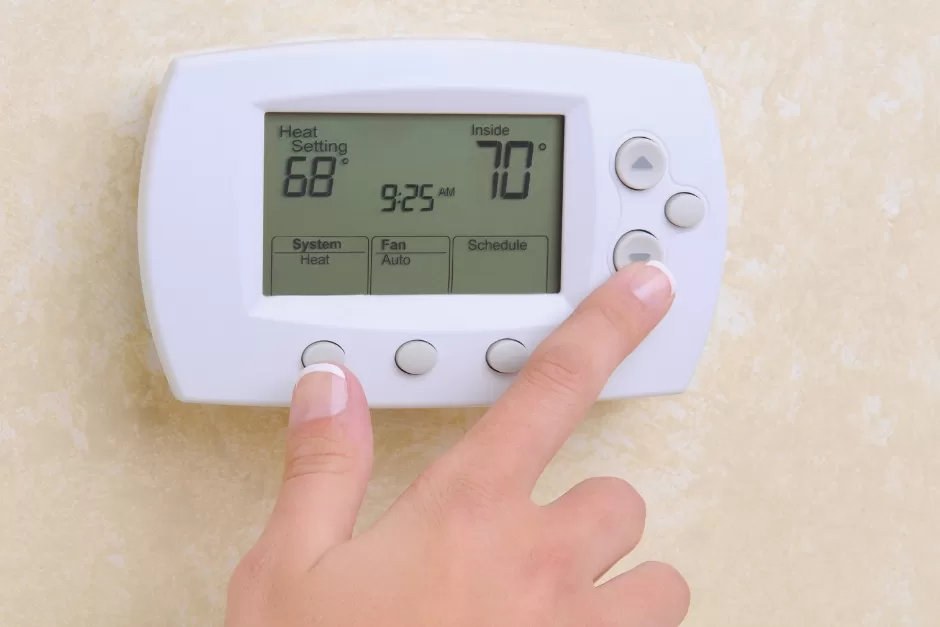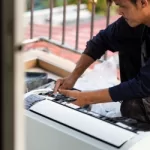Understanding the importance of a thermostat upgrade
Upgrading your thermostat can help you save energy and money by giving you better control over your heating system. It allows you to schedule temperature adjustments and can even learn your preferences to optimize energy usage. By upgrading to a programmable or smart thermostat, you can reduce energy waste and make your heating system more efficient, leading to lower utility bills. Additionally, a thermostat upgrade can improve your home’s comfort by maintaining consistent temperatures and reducing hot or cold spots.
How a thermostat upgrade can increase energy efficiency
Upgrading your thermostat to a smart one can help you save money on your energy bills by allowing you to control the temperature of your home more efficiently. Smart thermostats can learn your heating patterns and adjust the temperature accordingly, saving you more energy and money. They can also be controlled remotely through your smartphone, enabling you to optimize your heating system even when you’re away from home. With the use of a smart thermostat, you can ensure that your home is not wasting energy and your heating system is running at the most efficient level possible.
Benefits of a smart thermostat
Upgrading to a smart thermostat can save you money on your energy bills. Smart thermostats can learn your heating patterns, which helps you avoid wasteful heating and save energy. They also allow you to control your heating remotely from your smartphone, so you can adjust the temperature even when you’re not at home. Some smart thermostats also provide energy-usage reports, helping you understand and manage your energy consumption more effectively. In addition, they often come with features such as geofencing, which can automatically adjust the temperature based on whether you’re at home or away. Overall, a smart thermostat can offer greater convenience and energy efficiency for your heating system.
Factors to consider before upgrading your thermostat
Before upgrading your thermostat, it’s important to consider a few factors to ensure you make the right decision. Here are some key aspects to keep in mind:
-
Compatibility: Check if your heating and cooling system is compatible with the new thermostat. Some systems may require specific types of thermostats to function effectively.
-
Features: Research the features offered by different thermostat models. Look for ones with programmable settings, energy usage tracking, and compatibility with smart home technology if that’s important to you.
-
Cost: Compare the cost of the thermostat upgrade with the potential energy savings it can provide. Consider the long-term benefits in addition to the initial investment.
-
Installation: Determine if you can install the thermostat yourself or if you need professional assistance. Some thermostat upgrades may require wiring modifications, so it’s crucial to assess the installation process beforehand.
-
Energy Efficiency: Evaluate the energy efficiency ratings of different thermostat models. Look for ones that are ENERGY STAR certified to ensure optimal energy savings.
By considering these factors, you can make an informed decision about upgrading your thermostat for more energy-efficient heating.
Making the switch to a more energy-efficient heating system
Upgrading to a more energy-efficient heating system can help you save money on your energy bills and reduce your environmental impact. Here are five reasons why you should consider making the switch:
- You can save money on your energy bills by using less energy to heat your home.
- An energy-efficient heating system can help reduce your carbon footprint and contribute to a more sustainable environment.
- Upgrading your thermostat can provide more precise temperature control, ensuring optimal comfort while minimizing energy waste.
- Newer heating systems often come with advanced features such as programmable settings and smart home integration, making it easier to manage your home’s heating needs.
- Government incentives and rebates are often available for upgrading to energy-efficient heating systems, providing additional cost savings.





